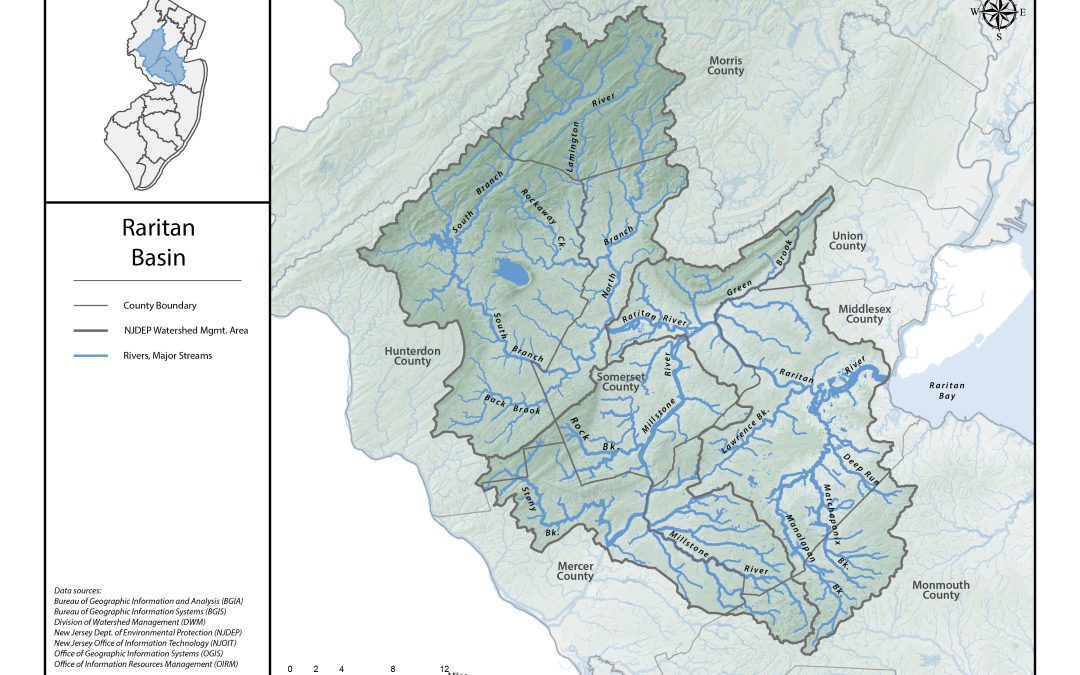Rutgers University’s Sustainable Raritan River Initiative has released a second report on the status of watershed health for the Raritan River. The...
Raritan River Initiatives

History of the Raritan River Timeline
During Spring Semester, 2019, Jenny Schneider, a candidate for the Rutgers Public History Program Certificate (School of Arts and Sciences,...
Sustainable Raritan Conference to focus on climate resilience
This year’s Sustainable Raritan River conference will be a joint effort with Rutgers Climate Institute, New Jersey Climate Change Alliance, and ...
Call for Lightning Talks and Posters for June Conference
Promote your work or solicit input. It’s open to everyone! Do you have a Raritan based project you want to tell others about? The Sustainable...
Tracking Genes and Bacteria Responsible for Organohalide Reduction in the Raritan River Basin
The Raritan River receives wastewater treatment plant (WWTP) effluent, stormwater runoff, combined sewer overflow (CSO), and groundwater...
Assessing Exposure of Water-Dependent Uses to Coastal Flood Hazards
Water-dependent uses along the New Jersey coast rely on access to the water that increasingly threatens to damage their facilities and support...
Take out the Rutgers’ research vessel!
The R/V Rutgers is back in the water! We are now taking reservations for spring and summer excursions. The Rutgers is capable of supporting a wide...
Video Series Explores Restoration of the Manalapan Brook Watershed
An “Restoring the Manalapan Brook Watershed”, a series of videos produced by the Rutgers Cooperative Extension of Middlesex County, examines...
Rutgers Partners with Raritan Headwaters Association to Study Microplastics in the Raritan River
The study of microplastics and their negative effects as water pollutants has led to multiple opportunities for research and partnership. Through...
Rutgers 2030 Master Plan Public Access Planning Studio
Seven graduate students participated in this Fall 2017 studio through the Edward J. Bloustein School of Planning and Public Policy to analyze two...
Recent Products
About Legal Advertising
This second part of The Future of New Jersey Journalism: Evolution, Not Extinction examines the evolving landscape of legal advertising requirements in New Jersey amid significant changes in media publishing models. The impending cessation of print operations by New...
Key influences on residential photovoltaic solar panel adoption in the United States
The prevalence of low-density residential development to host solar PV, the ubiquity of solar irradiation, and incentivizing policies have created substantial opportunities for homeowners in the United States. Federal, state, and municipal governments implement...
Comparing ambient and personal measurements of exposure to urban heat stress
This paper reports on a field study of personal exposures to summer heat stress in Elizabeth, NJ, USA, a medium-sized city that hosts an international airport, a shipping port, a petrochemical refinery complex, and a major transportation corridor in a densely...
Tenant Perspectives on Building Electrification in Affordable Housing
Low-and Moderate-Income (LMI) tenants are at risk of being left behind in the clean energy transition. While building electrification's environmental and health benefits are evident, it can pose accessibility challenges for LMI residents, who already bear a...